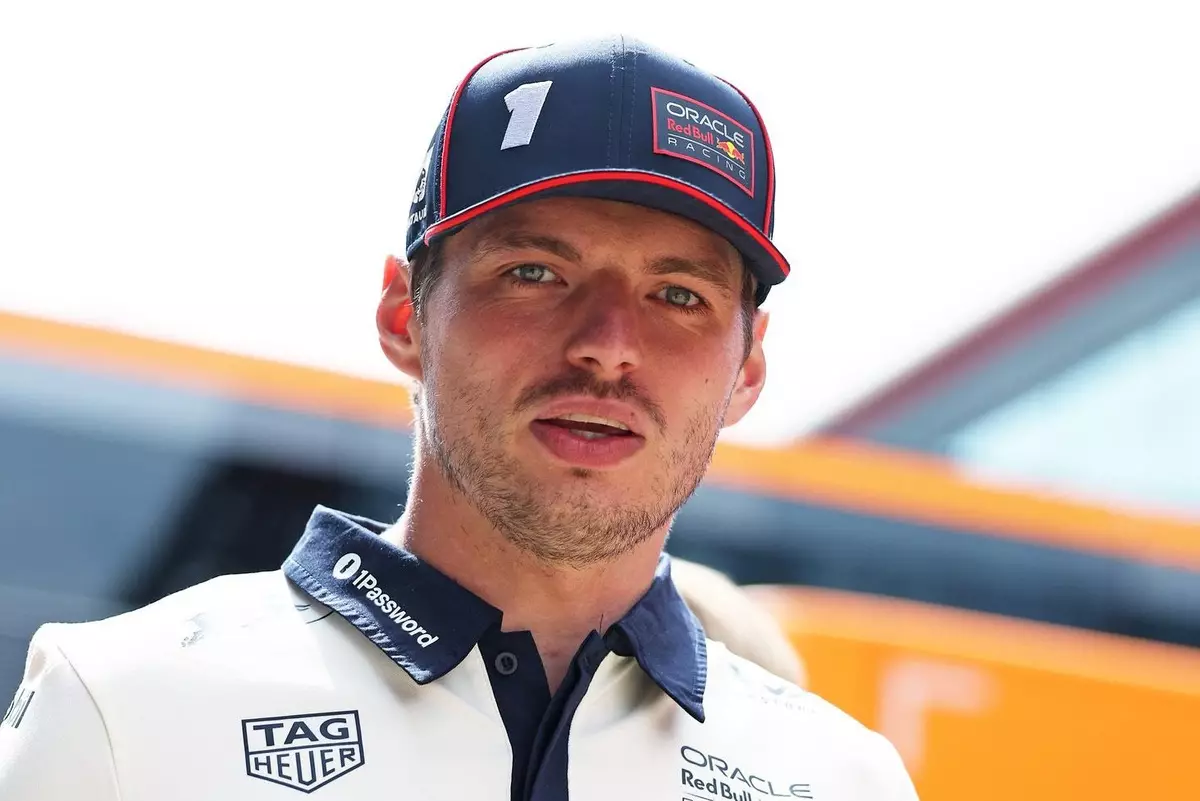In a sport where chaos and speculation often dominate headlines, Max Verstappen’s composed stance regarding his future stands out as a pillar of stability. During his media interaction at Silverstone, the four-time World Champion exhibited remarkable restraint, refusing to indulge in the swirling rumors about his plans beyond 2025. His succinct responses conveyed a clear message: he is not swayed by the noise surrounding his career transitions or team negotiations. Verstappen’s measured demeanor signals a confident individual who is not driven by external pressures, but rather by his own strategic outlook.
His decision to avoid discussing 2026 is not merely tactical silence; it underscores a deeper assertion of control. While other drivers and teams might succumb to the allure of speculation, Verstappen maintains a disciplined focus on the present. This attitude reveals a maturity born out of experience—acknowledging that the future is inherently uncertain, especially in the unpredictable landscape of F1 regulations and team dynamics. Notably, Verstappen’s preference for candid conversations with familiar broadcasters rather than media firestorms indicates an understanding of how to manage his narrative effectively.
Confidence Amid Uncertainty: The 2026 Outlook and His Commitment
A significant point of interest is Verstappen’s unwavering commitment to F1, explicitly ruling out the possibility of a sabbatical in 2026. This clarity demonstrates his genuine passion for racing and his desire to remain at the pinnacle of motorsport. Despite the speculation about teams approaching him—most notably Mercedes—Verstappen’s camp appears neither pressed nor excessively optimistic about the shifting team landscape.
This steadfastness might appear risky to some, especially when considering how teams like Mercedes are positioning themselves for a competitive future. Yet, Verstappen’s approach suggests that he trusts his current team, Red Bull Racing, and their capacity to adapt to upcoming regulation changes. His acknowledgment that there are many unknowns for 2026 indicates a pragmatic outlook, but one rooted in self-assurance rather than apprehension.
Verstappen recognizes the fluidity of F1’s future—teams rise and fall, regulations evolve, and strategies shift. His strategy seems to be locking in with a team he believes will continue to develop into the dominant force. The fact that he emphasizes his contractual commitment reinforces his confidence that, regardless of the chaos surrounding team battles, his current situation is the safest harbor for his ambitions.
The Future of Racing: Balancing F1 and GT3 Passions
A nuanced aspect of Verstappen’s outlook is his desire to diversify his racing portfolio. His recent success with a GT3 team—winning his class at Spa 24 Hours—demonstrates his ongoing passion for racing beyond the confines of Formula 1. While some might question whether shifting attention to GT3 is a distraction or a way to escape F1’s intense spotlight, Verstappen’s perspective reveals a different narrative.
He sees multiple disciplines as mutually enriching rather than mutually exclusive. His intention to combine high-level F1 competition with more personalized GT3 pursuits signifies a hunger for variety and challenge. This expands his reputation from merely a F1 driver to a versatile competitor, eager to test his skills across different racing formats.
Importantly, Verstappen dismisses any notion that he will abandon F1 prematurely. His commitment extends well beyond the immediate horizon, affirming that he intends to race in F1 at least until 2028. This dedication sends a message that he values the sport’s energy and demands, and that his recent side ventures are complementary rather than replacement activities.
Looking Ahead: An Open Mind in a Changing Landscape
Despite his confidence, Verstappen admits that predicting who will dominate in 2026 remains complex. He understands the inherent unpredictability of the sport, especially amid regulatory upheavals. This humility underscores a vital truth: even the most talented drivers cannot control every factor influencing team performance.
However, his acknowledgment of these uncertainties is coupled with trust in his current environment. His comment that no one can be certain about future dominance reinforces a realistic view—success depends on a combination of technical development, team synergy, and driver adaptability. Verstappen’s emphasis on doing his job swiftly and effectively every race highlights his belief that, ultimately, personal performance is the most controllable element.
This mindset underscores a fundamental principle: in a sport rife with volatility, unwavering focus and adaptability are the keys to long-term success. Verstappen’s approach—calm, strategic, and self-assured—positions him not just as a champion of today, but as someone prepared for whatever the future holds.

